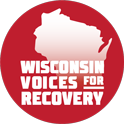While the attention of media, elected officials and community leaders has been focused on the COVID-19 pandemic, another crisis — opioid addiction — has worsened.
From January to May of this year, Wisconsin Department of Health Services data show that the state’s suspected opioid overdoses number 2,739. That number represents a 48 percent increase from 1,852 the same time last year.
“The opioid crisis is happening within a pandemic,” said Mary Henningfield, principal investigator with Wisconsin Voices for Recovery. “Even before COVID started in January, there has been an increase (in suspected overdoses) every month over 2019. We do hear frequently that there is definitely an uptick in the need for services.”
One legislative champion of measures to curb addiction agrees the shutdown hurt those who were suffering from addiction and other issues.
“Understandably, COVID kind of took the focus. But our response to it unfortunately, in my opinion, actually probably made the opioid crisis, mental health crisis, drug addiction crisis… suicide actually worse because the response was: basically shut down all nonemergency type procedures,” said Rep. John Nygren, R-Marinette. “You have to make sure that the cure isn’t worse than the disease, and unfortunately for some of our most vulnerable I’m afraid it might have been.”
Wisconsin Voices for Recovery is within UW-Madison’s Department of Family Medicine and Community Health. Funded primarily through DHS, the addiction advocacy organization works with 11 recovery community organizations statewide to provide peer support. Before COVID-19, the organization planned to do a lot of community outreach, primarily in communities of color, as part of a recent grant.
Montee Ball is an outreach specialist for Wisconsin Voices for Recovery, an organization with a mission to support those in recovery or seeking recovery for substance use disorders, including opioid use disorder.
He joined forces with the organization to use his voice as a former Badger and Denver Broncos running back to help others avoid addiction that eventually ended his NFL career. Today he meets with minority community leaders and helps them get the support they need.
But with COVID-19, everything had to be shut down, including support meetings and non-emergency health care, forcing groups like Wisconsin Voices for Recovery to rely on virtual meetings and connections.
“I’m thankful to be going on four years of sobriety, but I can only imagine how it would be if I was two months into it and then everything gets shut down,” Ball said. “I most likely, probably would relapse, unfortunately. And because you’re told to stay home, well I would stay home and maybe do some things I shouldn’t have done.”
What helps individuals to stay sober is to build a community by going to therapy, hanging out with friends who understand the path and attending sober events. While virtual peer support has allowed sponsors and support to easily reach people far away and in more remote regions of the state, Ball said that it’s just not as personable — or effective.
“There’s something very special about being face to face and in the same room with those that are in recovery,” he said. “Seeing the energy, feeling the vibes and hearing the stories out of someone’s mouth other than a speaker in your laptop.”
Both Ball and Henningfield agree that Wisconsin Voices for Recovery has done a great job of adapting and pivoting to be there for those who need it, whether it’s to hear a positive story or keep individuals on their sobriety journey.
But it’s not easy. There’s all kinds of factors at play, including the stay-at-home orders, the stress and anxiety related to that, and the financial concerns when people lost their job or were homeless, according to Henningfield.
“That has all contributed,” she said. “The opioid crisis is still there very much, and if anything, it has accelerated a little bit. There is so much focus on COVID, but we don’t want to lose sight of helping other people.”
Nygren is no stranger to the effects of substance abuse and opioid addiction.
“My daughter, who is 31 years old now, has struggled with addiction, pain pills, later heroin, to the point where she’s incarcerated now,” he said. His constituents are also impacted by the crisis.
“Marinette was an early indicator for what was to come nationally,” Nygren said. “We had a doctor actually selling prescriptions for oxycontin back in the mid-2000s. Because of that, we had a lot of (young) people who became addicted.”
But even after the doctor went to federal prison and the opioid supply “dried up,” Nygren said heroin dealers came in to fill that void.
“We were impacted early and a lot of deaths, a lot of lives that have been negatively impacted,” he said.
But an increase in suspected overdoses is just one of the challenges that addiction advocates are facing. The other is stigma.
“One of the barriers that we’re still facing is stigma within public perception, because I still hear people say things like ‘if you have an opioid problem, just stop,’” Henningfield said. “There’s not really the compassion or empathy that this is a really serious health care crisis and people need help on their road to recovery.”
Ball echoed Henningfield: “I want to bring down that wall, that stigma, because I feel like as more people approach addiction with compassion, empathy, we’ll be able to make some significant strides.”
And while Nygren argues that Wisconsin and the nation has come a long way, he too said outdated perceptions pose challenges in obtaining funding and passing legislation.
“Until it affects someone you know, until it affects your family directly, I still do think there’s a certain amount of stigma revolving around both of them,” he said. “We’ve improved, we’ve put a lot more money in Wisconsin into substance abuse and mental health and nationally as well. I think there is still more investment that needs to be made.”
Nygren noted two bills pending in the state Senate: an extension of the 911 Good Samaritan Law, which will expire if the Senate does not act; and a pilot program that would allow for coverage of nonaddictive form of pain treatment such as chiropractic, physical therapy or acupuncture, which is not a covered service today.
-By Stephanie Hoff
WisBusiness.com






